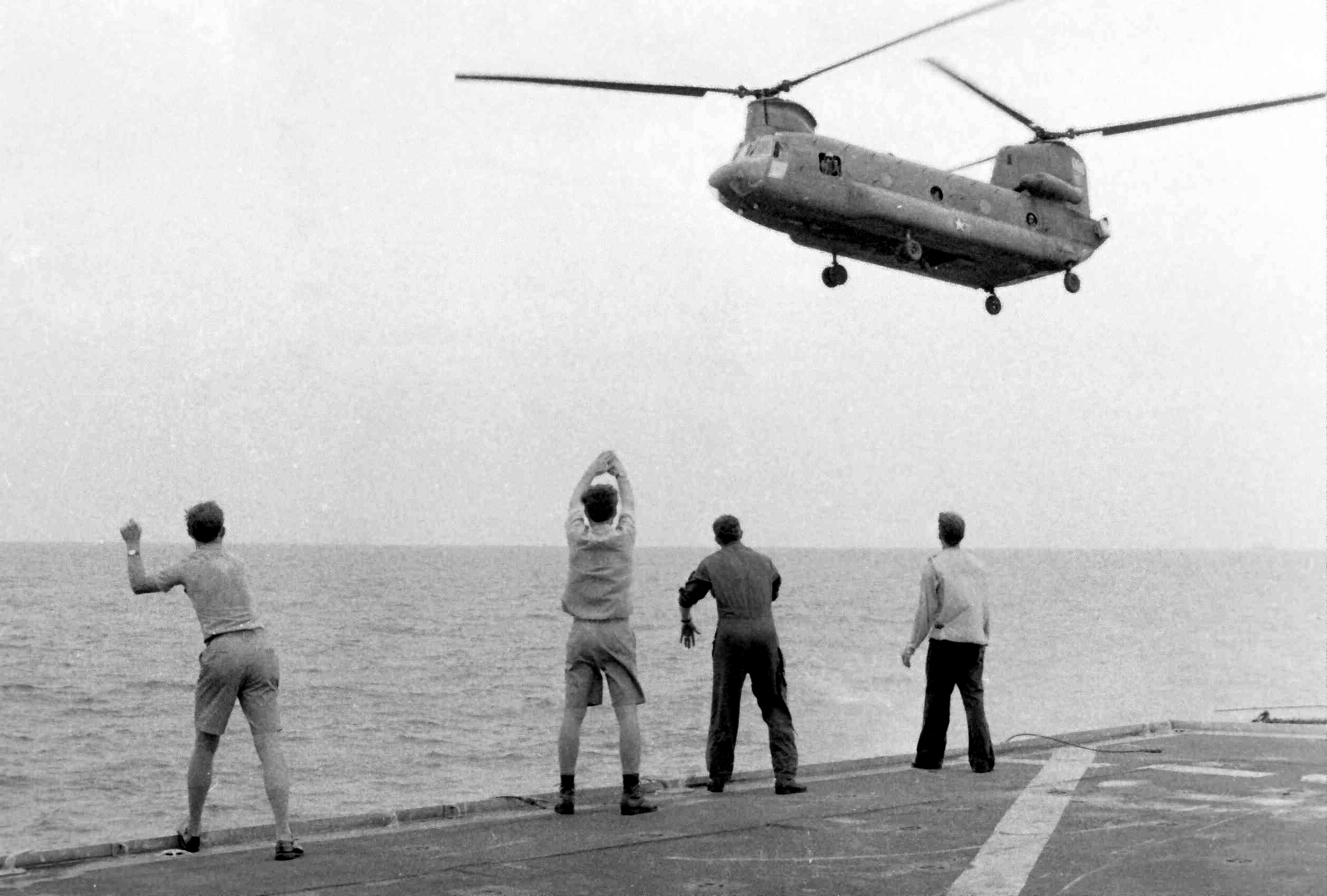How, short of total victory, do you end a war? The question has been haunting our military and political leaders since Korea. And though Rory Kennedy’s sobering new doc focuses on the last few desperate days of the Vietnam War, 40 years ago, its lessons are surely applicable today in Iraq, Afghanistan, and whatever the hell it is we call ISIS.
Kennedy, director of Last Days of Abu Ghraib and daughter of RFK, is obviously super-connected. She gets Kissinger on camera, plus other veterans of Nixon’s White House, but the bulk of the testimony here comes from guys who were actually on the ground in Saigon—soldiers (American and Vietnamese), a CIA agent, embassy staffers, and the stray journalist or two. These fresh interviews are coupled with vivid archival news footage from a time when photojournalists were on the frontlines. They filmed on both sides of the U.S. embassy walls as a terrified tidal wave of humanity sought evacuation before the North Vietnamese Army overran Saigon in late April 1975. Kennedy’s task is now to make sense of that chaos.
Direct U.S. involvement in the war had concluded with the 1973 peace accords; but, as in Baghdad today, a sizable American contingent remained. Then Nixon resigned after Watergate, and North Vietnamese fears of new carpet bombing were dispelled. President Ford couldn’t get any military-assistance funds out of Congress (no surprise), and the NVA began its swift, relentless drive south. With a deluded ambassador in charge, his men began a covert evacuation plan that would also include thousands of Vietnamese (despite orders and U.S. immigration laws): girlfriends, wives and families, friends, and brothers-in-arms. (“We gotta save the tailor!” says one attache whose suits he made.)
There’s intrigue in these brave tales that occasionally recalls Argo, only with an unhappy outcome for all those natives left behind (some of whom Kennedy interviews). The helicopters frantically shuttled thousands to U.S. ships, and one Navy commander says the accompanying boatlift “looked like something out of Exodus.” Does he mean the Bible, the Leon Uris novel, or the movie? The analogy works in all senses. Events here took place only three decades after the Holocaust and the postwar partition of Europe. How could we Americans not feel guilty about our past failures? Starting with the best intentions, our country became the retreating imperial arbiter between the drowned and the saved. Kennedy hardly has to say it, but the same unhappy situation exists today. Opens Fri., Oct. 3 at Varsity. Not rated. 98 minutes.
bmiller@seattleweekly.com








